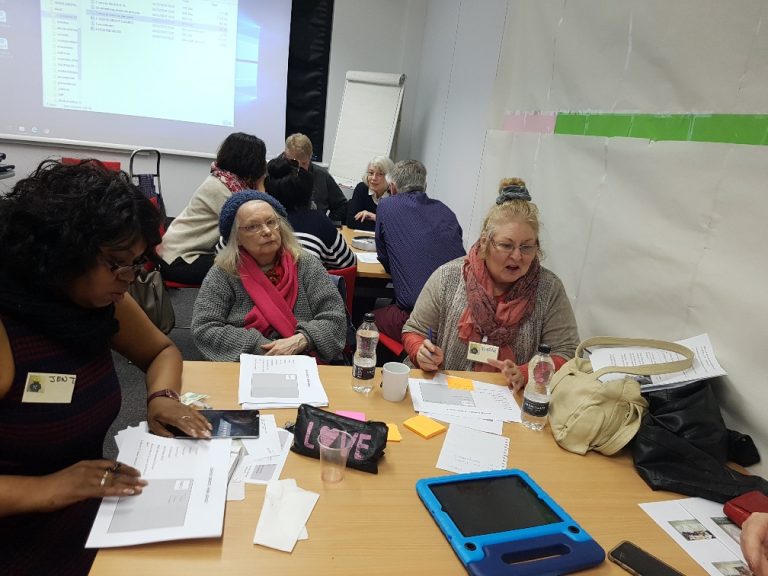The MinD project has hosted a further secondment in March 2018, jointly by the University of Wolverhampton and Nottinghamshire Healthcare NHS Foundation Trust, UK. A key task of this secondment was the consultation with people with dementia and carers from the Nottinghamshire Public and Patient Involvement Group about the ‘Social Engagement Map’, one of the project’s proposed designs.
The ‘Social Engagement Map’ aims to support people with dementia to stay socially connected and engaged, and in control of their social life. The design concept had been selected in October 2017 from a shortlist with the help of people with dementia, caregivers and healthcare experts in a number of public and patient involvement (PPI) sessions in Germany, Spain and the UK.
The consultation in this secondment had two purposes: to help with the development of the design, and to improve our understanding of how to conduct co-creation processes with people with lived experience of dementia in order to develop the design idea in a way that is relevant and desirable to the people it is intended for. We therefore organized a PPI-co-design session on Thursday 8 March at the Institute of Mental Health, Nottingham with 20 participants, including 14 experts in lived experience of dementia and memory loss as well as MinD researchers, including psychologists, psychiatrists and designers.
The day was conceived of as a journey together for all participants to enable sharing knowledge and experiences of lived experience and of designing. The morning started with sharing experiences, success and difficulties and gave voice to hopes and suggestions around socialising, recognising them as shared human issues. This was followed by a lecture about co-research with people with dementia, which all participants elected to attend.
The afternoon commenced with picture slides of the project´s journey and a brief introduction to the nature and purpose of design. Groups brought familiar objects to consider how useful these were as memory aids and guides; what we liked about them, what was difficult, and what improvements we wished for. People with lived experience began to think like designers; designers began to see more clearly the lived-in world of memory loss. The afternoon finished with an introduction to the proposed Social Engagement Map with participants offering suggestions on improvements or variations that might be useful. A large amount of material was gathered, which is fed back to designers for further development now.

